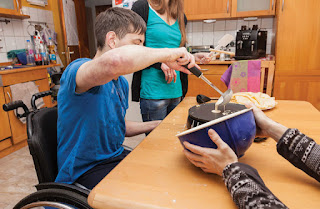Nursing home: How to Transfer a Loved One To A Nursing Home
The nursing home transition program is
successful. A study by the National Institute on Aging found that the nursing
home transition program reduced residents' number of days in the hospital by 32
percent. The nursing home transition program also reduced residents' days in
the emergency room by 31 percent.
How to choose a nursing home
transition program
People often find themselves needing to find a
nursing home for a loved one. It can be a difficult decision, but there are
some things to consider that can make the process a bit easier.
The first thing to consider is what the needs
of the person are. Some people need more care than others, and finding a
facility that can meet those needs is important. It's also important to find a
home that is in a good location, with easy access to doctors, hospitals, and
other necessary resources.
Another thing to consider is the cost. Nursing
homes can be expensive, and it's important to find one within your budget. It's
also important to make sure that the home you choose offers good value for the
money.
Finally, it's important to do your research
and visit a few different homes before making a decision. Talk to the staff,
ask for references, and take a tour. This will help you find the right home for
your loved one.
How to prepare for the nursing
home transition
Now that you have decided to move, it is time
to start planning. The first thing you need to do is to organize all of your
belongings. You must decide what to take with you and what to sell or donate. It
would help if you also started packing early so that you are not rushed in the
last few days.
Once you have everything packed, you must make
a moving checklist. This will help you ensure you have everything you need for
the move.
Finally, you will need to make a plan for the
move. This will include what you will do on moving day and how you will get
your belongings to your new home.
What to expect in the nursing
home
The nursing home can be a scary place for the
elderly resident and the family member or friend visiting. It's important to
know what to expect before you go so that you can be prepared. The nursing home
will likely be very different from what you are used to. The hallways may be
long and empty, the rooms may be small, and the patients may be confined to
their beds or wheelchairs.
Most nursing homes are very clean and
well-maintained, but there may be some areas that are in need of repair. Be
sure to ask the staff about the home's condition before you place a loved one
there.
The staff at the nursing home will be
responsible for the care of your loved one. They will bathe, groom, feed, and
ensure they are comfortable. It is important to get to know the staff and let
them know your loved one's likes and dislikes.
There will likely be a lot of noise and
activity at the nursing home. Patients will be talking to each other, the staff
will run around, and machines will beeping. This can be jarring for those not
used to it, but it is a normal part of the nursing home environment.
The nursing home is great for elderly
residents who need around-the-clock care. It is a safe and secure environment
where they can receive the care they need.
Adjusting to life in a nursing
home
The first few weeks in a nursing home can be
difficult. You must get used to a new routine, new people, and a new
environment. It can be hard to adjust to life in a nursing home, but trying to
make the most of it is important. Many activities and social events are
available, so be sure to take advantage of them. Talk to the other residents
and staff, and make friends. It may take some time, but eventually, you will
feel like you belong in the nursing home.



Comments
Post a Comment